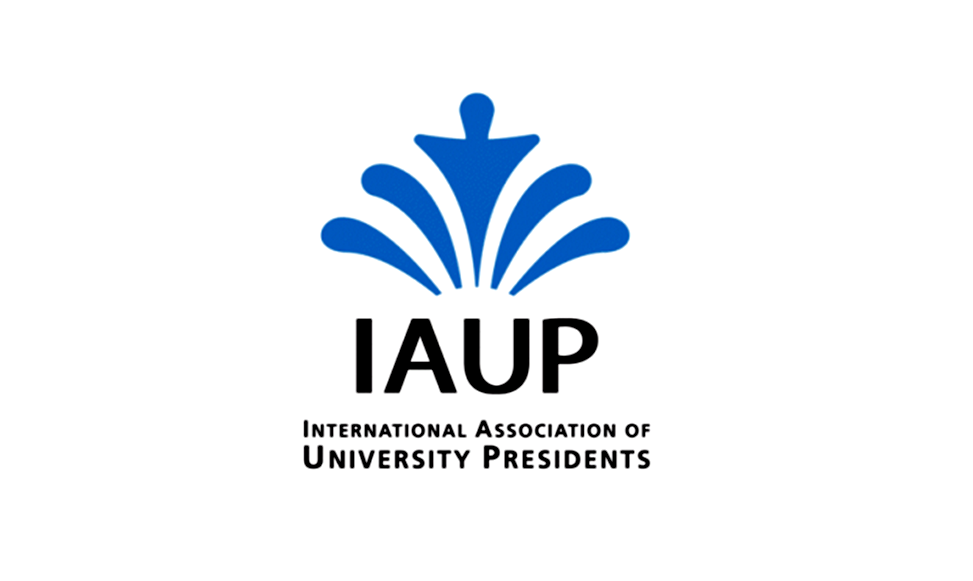Events
The Asia Pacific School of Business Launches a New Model of Cooperative Education

The Asia Pacific School of Business Launches a New Model of Cooperative Education
Deeply participate in the "Belt and Road" higher education in China
In an era of increasing globalization and international cooperation in education, the Asia Pacific School of Business (APSB) has emerged as a pioneer in introducing a novel model of cooperative education. With a rich history dating back to 1995, APSB has been committed to "integrating Chinese and Western knowledge and emphasizing the unity of knowledge and action" in nurturing business professionals.
I. The Advantages of Cooperative Education Model
1. Resource Integration and Synergy
◦Through cooperative education, APSB has successfully integrated resources with partner institutions. For instance, in joint research projects, APSB and its partners pool their research facilities, data, and academic expertise. In a recent study on cross - border e - commerce in the Asia - Pacific region, APSB collaborated with a leading university in the United States. The American university provided advanced data analytics tools and global e - commerce market insights, while APSB contributed its in - depth understanding of local business regulations and consumer behavior in the Asia - Pacific. This synergy led to a comprehensive research report that offered valuable suggestions for businesses operating in this field.
◦In terms of teaching resources, faculty exchange programs are regularly carried out. APSB's professors, who are well - versed in Asian business practices, can share their practical experience with students at partner universities. Conversely, international professors bring the latest global academic research findings and teaching methods to APSB. This cross - fertilization of ideas enriches the learning experience for students on both sides.
2. Cultivation of Global Competence
◦ooperative education programs at APSB expose students to diverse cultures and educational systems. Students have the opportunity to participate in international exchange programs, joint seminars, and overseas internships. For example, APSB students majoring in international business can intern at multinational corporations through the cooperative network. They work alongside employees from different cultural backgrounds, learning how to communicate effectively across cultures, adapt to different work styles, and understand global market dynamics. This hands - on experience equips them with the skills and mindset necessary to succeed in the global business arena.
◦ The curriculum in cooperative education often incorporates international case studies and global business trends. Students analyze real - world business problems from a global perspective, learning to develop strategies that are applicable across different countries and regions. This not only broadens their knowledge but also sharpens their critical thinking and problem - solving abilities in a global context.
II. The Advantages of Cooperative Education Model
1. Recognition from Prestigious International Bodies
◦APSB has obtained accreditation from several renowned international academic organizations, which attests to its high - quality education and academic standards. It is accredited by the Accreditation Council for Business Schools and Programs (ACBSP). The ACBSP accreditation is based on a rigorous evaluation of APSB's teaching - learning processes, strategic planning, and student outcomes. This accreditation ensures that APSB's business programs meet the global standards of business education, emphasizing the development of practical skills and ethical business leadership.
◦APSB is also a member of the International Association of Universities (IAU). This membership reflects APSB's commitment to international cooperation in higher education, academic quality assurance, and the exchange of best practices. The IAU's recognition further enhances APSB's international reputation and facilitates its participation in global educational initiatives.
◦Additionally, APSB has received the Business Graduates Association (BGA) accreditation. BGA, a part of the Association of MBAs (AMBA), focuses on responsible management practice and lifelong learning, and APSB's accreditation indicates its contribution to positive impacts on students, the economy, and society.
2. Validation of Academic Quality
◦These international accreditations are a testament to APSB's academic rigor. The accreditation process involves comprehensive reviews of APSB's curriculum design, faculty qualifications, and research output. For example, in the curriculum review, international accrediting bodies assess whether the courses cover all essential aspects of business education, from core business disciplines such as finance, marketing, and management to emerging areas like digital business and sustainable development. The high - caliber faculty at APSB, with their extensive academic and industry experience, also plays a crucial role in maintaining the school's academic quality, which is recognized and validated by these international accreditations.
III. Support from the Chinese Government and Cooperative Projects in Mainland China
1. Policy Support under the "Belt and Road" Initiative and President Xi Jinping's Higher Education Vision
◦ In line with China's "Belt and Road" initiative and President Xi Jinping's vision of promoting international cooperation in higher education, APSB's cooperative education initiatives in China have received strong support from the Chinese government. The Chinese government encourages international educational cooperation to enhance the quality of domestic higher education and cultivate international - minded talents. APSB's efforts in promoting cooperative education align with China's educational development goals, especially in the areas of international business education and cross - cultural communication. The government provides policy - level support, such as facilitating visa applications for international faculty and students involved in APSB's cooperative programs, and offering financial incentives for joint research projects between APSB and Chinese institutions in key strategic areas.
2. Joint Co - training Projects with Chinese Universities
◦ APSB has established joint co - training projects with more than ten universities in Mainland China, including the Chinese Academy of Social Sciences, University of Sanya, Guangxi Minzu University, Liaoning University of Finance and Trade, Hubei Institute of Fine Arts, Wuhan University of Light Industry, Wuchang University of Technology, Hankou University, and Geely University of China. These projects have been approved by the relevant Chinese authorities.
◦ As of now, these joint projects have attracted over 1,300 students. Among them, 384 students are from Vietnam, 471 are Chinese students, and more than 460 students come from other countries and regions. This diverse student body not only enriches the learning environment but also promotes cross - cultural exchanges and collaborations.
◦ For example, in the joint program with the Chinese Academy of Social Sciences, APSB and the Academy collaborate on research and teaching in the field of international business and economic development. The program combines the theoretical research strength of the Chinese Academy of Social Sciences with APSB's practical business education experience. Students in this program have the opportunity to participate in high - level research projects and internships in top - tier Chinese and international enterprises, gaining both theoretical knowledge and practical skills.
◦ In the cooperation with University of Sanya, APSB focuses on developing programs related to tourism management in the Asia - Pacific region. The two institutions jointly design curriculum, share teaching resources, and organize student exchange activities. Through this cooperation, students can learn about the unique tourism resources and management models in different parts of the Asia - Pacific, preparing them for careers in the international tourism industry.
IV. The "Joint Graduate School of Traditional Medicine" Project in Vietnam
1. Strong Support from Chinese Authorities and Academic Institutions
◦ APSB has taken the lead in establishing the "Joint Graduate School of Traditional Medicine" in Vietnam. This project has received significant support from the National Administration of Traditional Chinese Medicine of China and the China Association of Traditional Chinese Medicine. In addition, it has strong academic backing from prestigious institutions such as Beijing University of Chinese Medicine, Shanghai University of Traditional Chinese Medicine, and Henan University of Chinese Medicine.
2. Training System for "Traditional Chinese Medicine Inheritors" and the "Academia + Clinic" Education Model
◦ The project is dedicated to cultivating "Traditional Chinese Medicine Inheritors" with a focus on an "Academia + Clinic" education model. Students in this program not only receive in - depth academic training in traditional Chinese medicine theories, pharmacology, and acupuncture techniques but also gain practical experience through clinical internships in well - equipped traditional Chinese medicine clinics. This model ensures that graduates are well - versed in both theoretical knowledge and practical skills, capable of promoting traditional Chinese medicine in the international arena.
In conclusion, the new model of cooperative education launched by APSB, with its distinct advantages, strong international accreditations, extensive cooperation in China, and innovative projects like the "Joint Graduate School of Traditional Medicine" in Vietnam, showcases its forward - looking vision, enthusiasm, and significant contributions to the integration of educational resources and the advancement of China's higher education cause. As APSB continues to expand and deepen its cooperative education initiatives, it is expected to play an even more important role in promoting international educational exchange and cultivating globally competitive talents in the future.
























